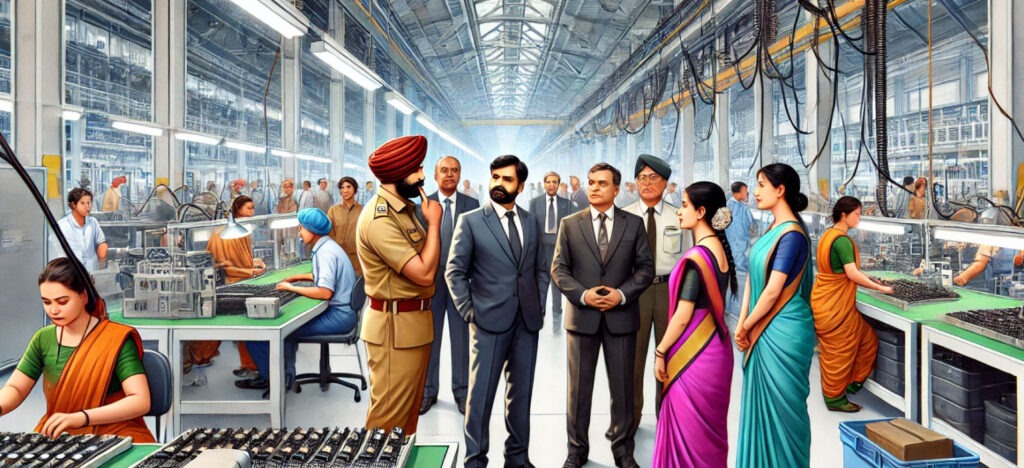Mexico drives the AI revolution with the world's largest superchip fab for Nvidia

Mexico will be home to the world's largest semiconductor manufacturing plant, an initiative led by Foxconn in collaboration with Nvidia.
Located in Guadalajara, this plant will produce GB200 superchips, which are essential for the new generation of artificial intelligence (AI) processors. This project underscores Mexico's growing role in the global advanced technology landscape and highlights the country's strategic importance in the semiconductor supply chain.
Foxconn, recognized for its role as the largest contract electronics manufacturer, has been a key player in the assembly of devices for companies such as Apple. However, the expansion into semiconductor production in partnership with Nvidia marks a new stage in its evolution.
This project represents an important opportunity for Mexico to integrate into the manufacture of high value-added technological components.
Strong demand for these chips, driven by the growing adoption of AI technologies, positions Mexico as a key center for the production of advanced technology.
The development of this plant not only generates a significant investment injection for the country, but can also strengthen the competitiveness of the Mexican technology industry at a global level.
By having access to the infrastructure to produce state-of-the-art superchips, Mexico is in an advantageous position to attract more technological investment and consolidate its position as an advanced manufacturing center in the Western Hemisphere.
This strength, combined with Mexico's strategic geographic location and proximity to U.S. markets, offers a competitive advantage in the global supply chain.
The dependence on foreign companies for the development of advanced technology can be seen as a weakness for the Mexican industry. Despite having the infrastructure to produce chips, the intellectual property and chip design is still in the hands of foreign companies such as Nvidia. This could limit the development of its own technological capabilities in the long term, unless the creation of research and development centers located in Mexico that can collaborate with global companies in technological innovation is encouraged.
The increase in demand for artificial intelligence chips, accelerated by the growth of technologies such as ChatGPT, opens up a vast market for the country. Mexico, traditionally known for its manufacturing assembly capacity, can transform its role in the global value chain if it can capitalize on this investment to develop specialized talent and proprietary technology. In addition, Foxconn's presence in Guadalajara could attract other key players in the semiconductor and AI server industries, helping to diversify Mexico's economy into higher value-added sectors.
The semiconductor industry is highly competitive and subject to global fluctuations in demand. Volatility in international trade relations, especially between the United States and China, could affect investments and the stability of projects such as this one in the future. In addition, heavy reliance on foreign direct investment may make the Mexican market vulnerable to changes in the industrial policies of other countries, which could choose to repatriate semiconductor production or establish trade barriers.
The installation of this plant in Mexico is undoubtedly news that reinforces the country's attractiveness as a center for advanced manufacturing. However, it also highlights the challenges that the Mexican market will have to overcome to consolidate a more robust and less dependent position in the global semiconductor chain. The ability to take advantage of this opportunity will depend on how the country manages internal and external factors, ensuring that this investment is not just a momentary boost, but a platform for sustained growth in the technology sector over the long term.
Collaboration: Editorial Auge.





